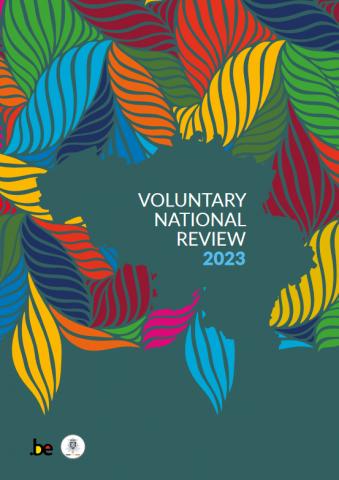Voluntary National Review (VNR)

Belgium presents its second Voluntary National Review in New York
This presentation is an important step in the general follow-up of the 2030 Agenda and the Sustainable Development Goals (SDGs). Each year, several UN member states meet in New York to review the progress they have made in implementing the SDGs. Belgium presented its first VNR in 2017.
Why a Voluntary National Review?
Effective monitoring and evaluation of the 2030 Agenda is essential to ensure continued action and progress towards the SDGs. Voluntary National Reviews (VNRs) are at the heart of this monitoring process. They are a tool for measuring progress in implementing the 2030 Agenda and the SDGs. They also provide an opportunity to exchange experiences, successes, challenges and lessons learned. This enables countries to strengthen their policies and mobilize all stakeholders to accelerate the implementation of the 2030 Agenda.
Belgium's Voluntary National Review: a collaborative process
Belgium's second VNR is the result of collaboration between the different political levels from the federal, federated and local entities to representatives of civil society and the private sector. The Federal Council for Sustainable Development (CFDD-FRDO) represented the voice of society. Various other actors were represented: trade unions, employers' federations, NGOs, the youth sector and the scientific and research sector. Inclusion and the principle of "leave no one behind" were the keywords of this process.
Initially, the contribution of all these social groups was discussed in the SDG Forum. At the same time, the governments drew up their own contributions. Subsequently, joint recommendations on the draft VNR from various advisory councils were sought, and the summary of the contributions received, both from civil society groups and local authorities, was included in the report.
The full contributions of all participants (governments and social groups) is available from July on this website.
Strengths, challenges and policy initiatives
The second VNR reveals that Belgian governments have taken numerous policy initiatives to strive to achieve the SDGs. However, many challenges remain. According to national statistics, Belgium is on track to meet targets for only 20 of the 51 indicators assessed in 2022. An appendix to this report shows progress since 2000 for a list of 82 indicators, classified by SDG, at the national and regional levels.
According to the VNR, achieving the SDGs is fraught with difficulties. The main challenges are the consequences of the COVID-19 pandemic, growing geopolitical uncertainty, the climate crisis, loss of biodiversity, social inequality, the link between digitalization and sustainable development and the central role of education. Yet these challenges are also opportunities that governments must seize. In their contributions, civil society actors call for greater coherence in monitoring the implementation of the SDGs across political levels. The different regional and federal entities in Belgium need to better coordinate their SDG policies. And since the impact of our activities extends beyond our borders, it is also important to pursue a coherent policy at the international level.
More information
Contributions from Government Entities
Contributions from societal groups
If you have any questions, please contact Ramon Boone